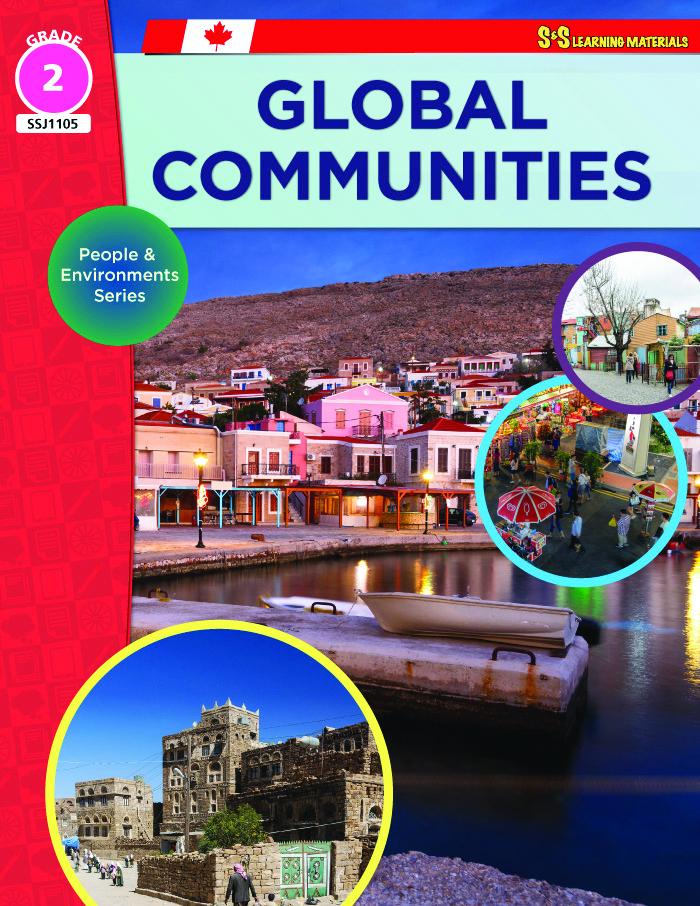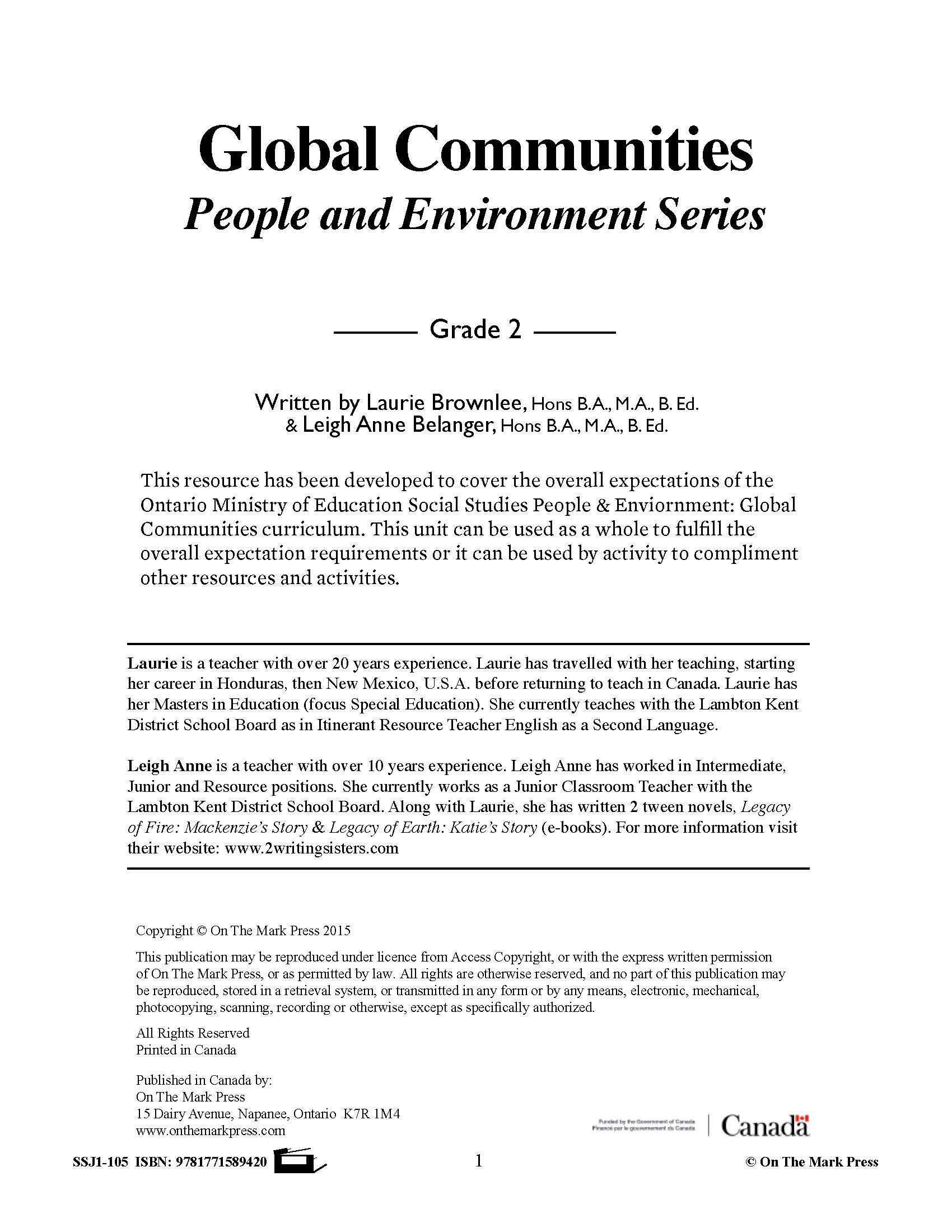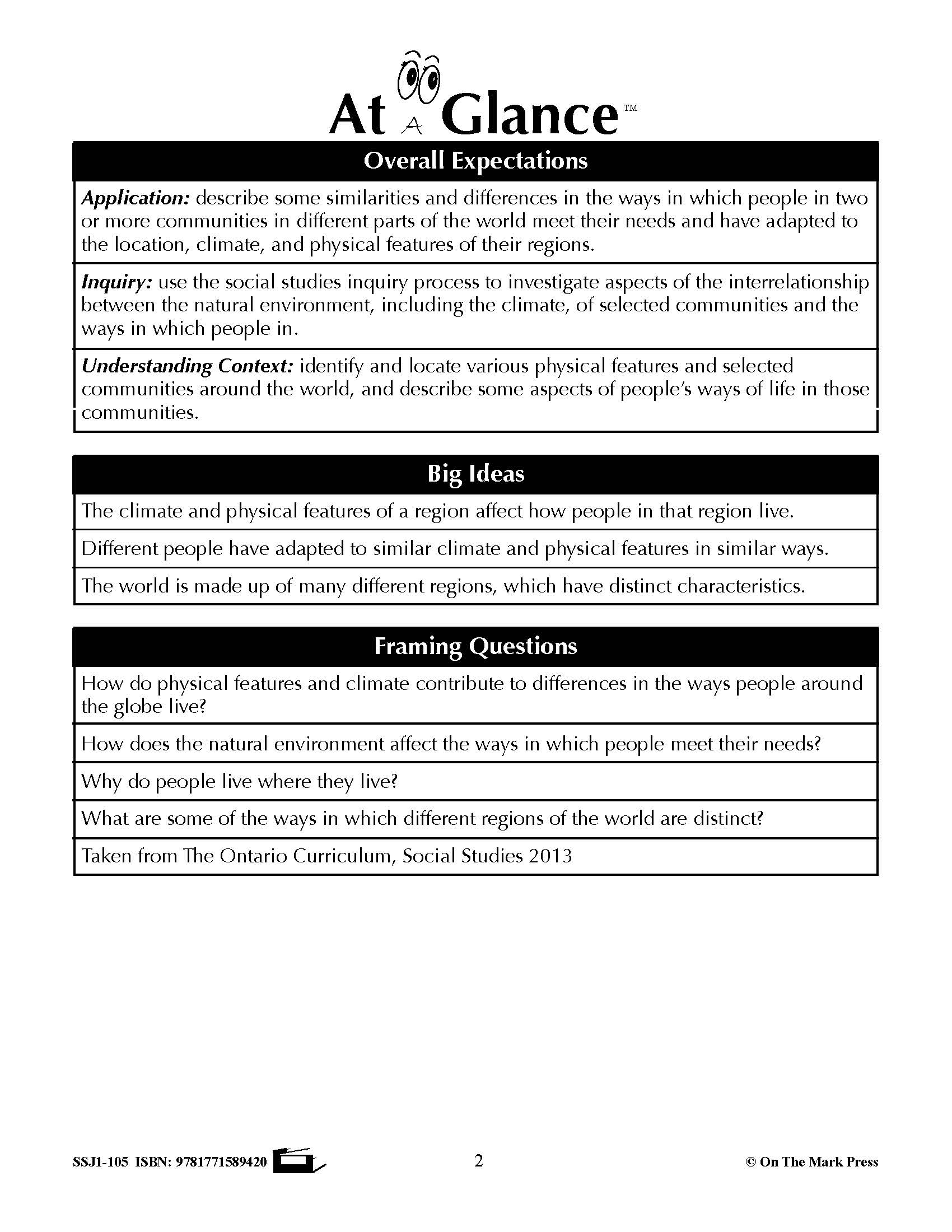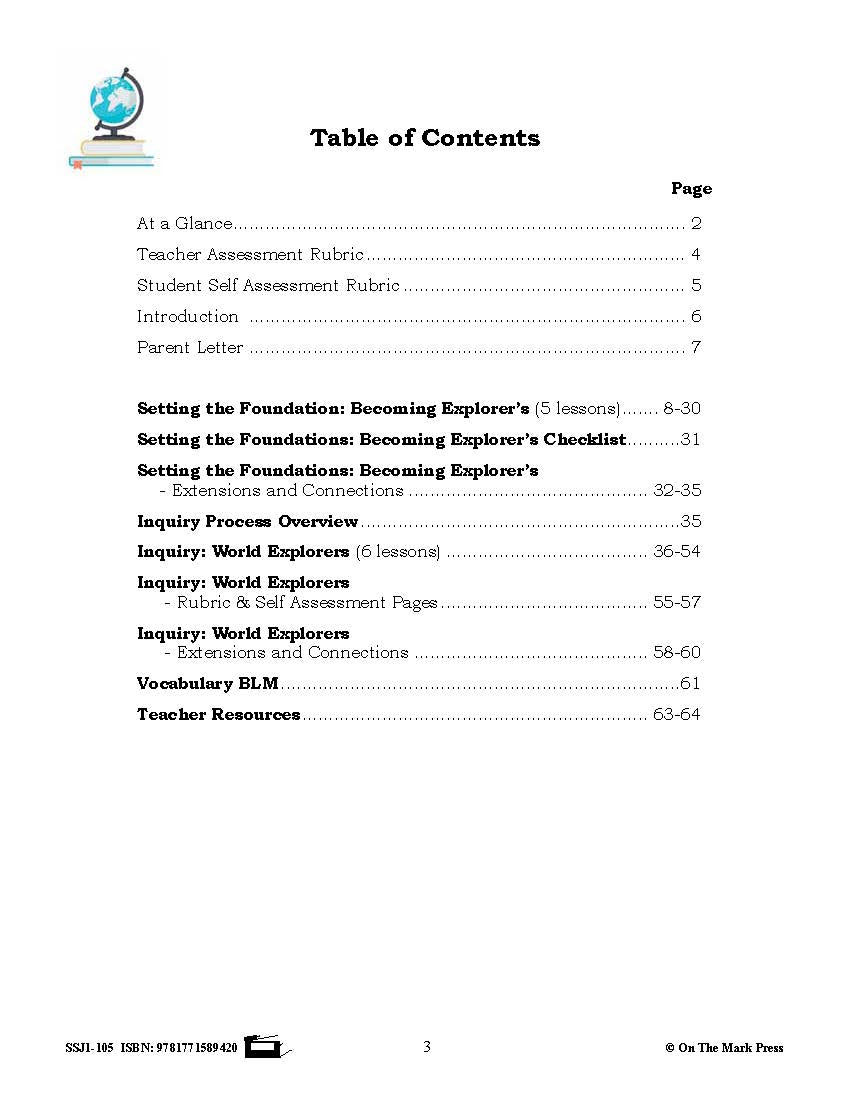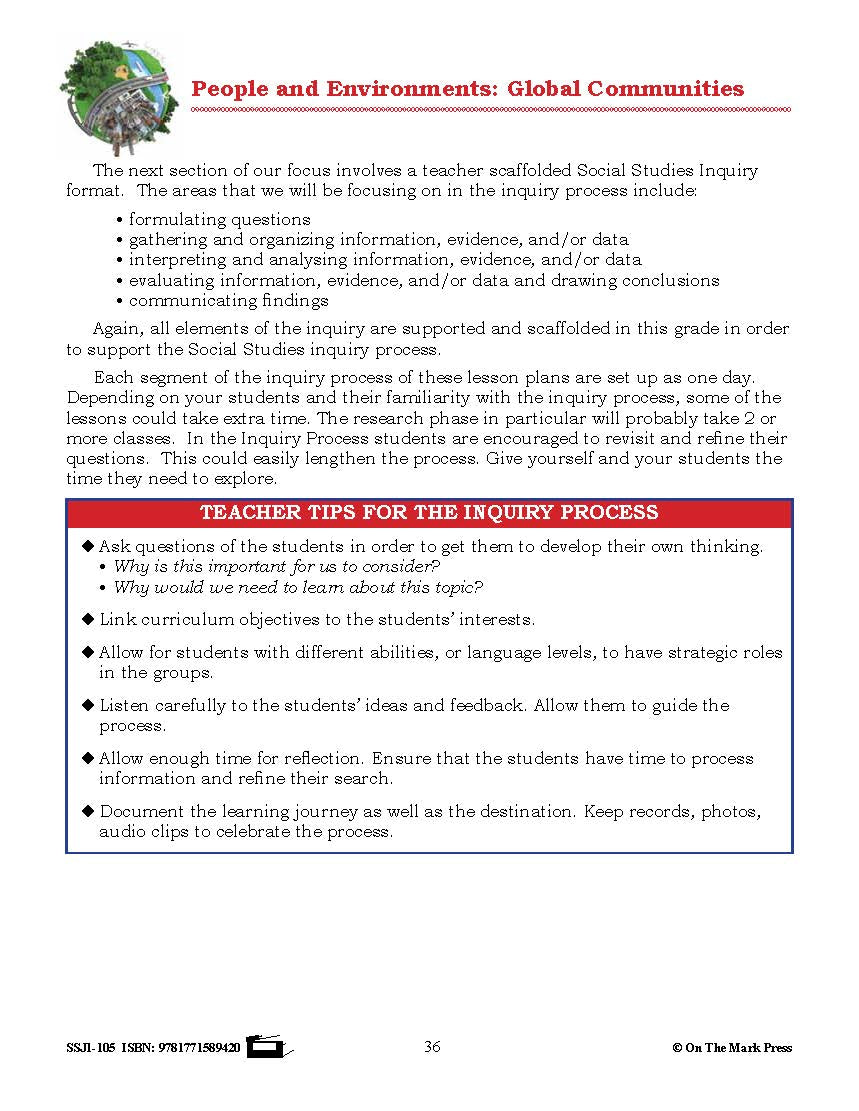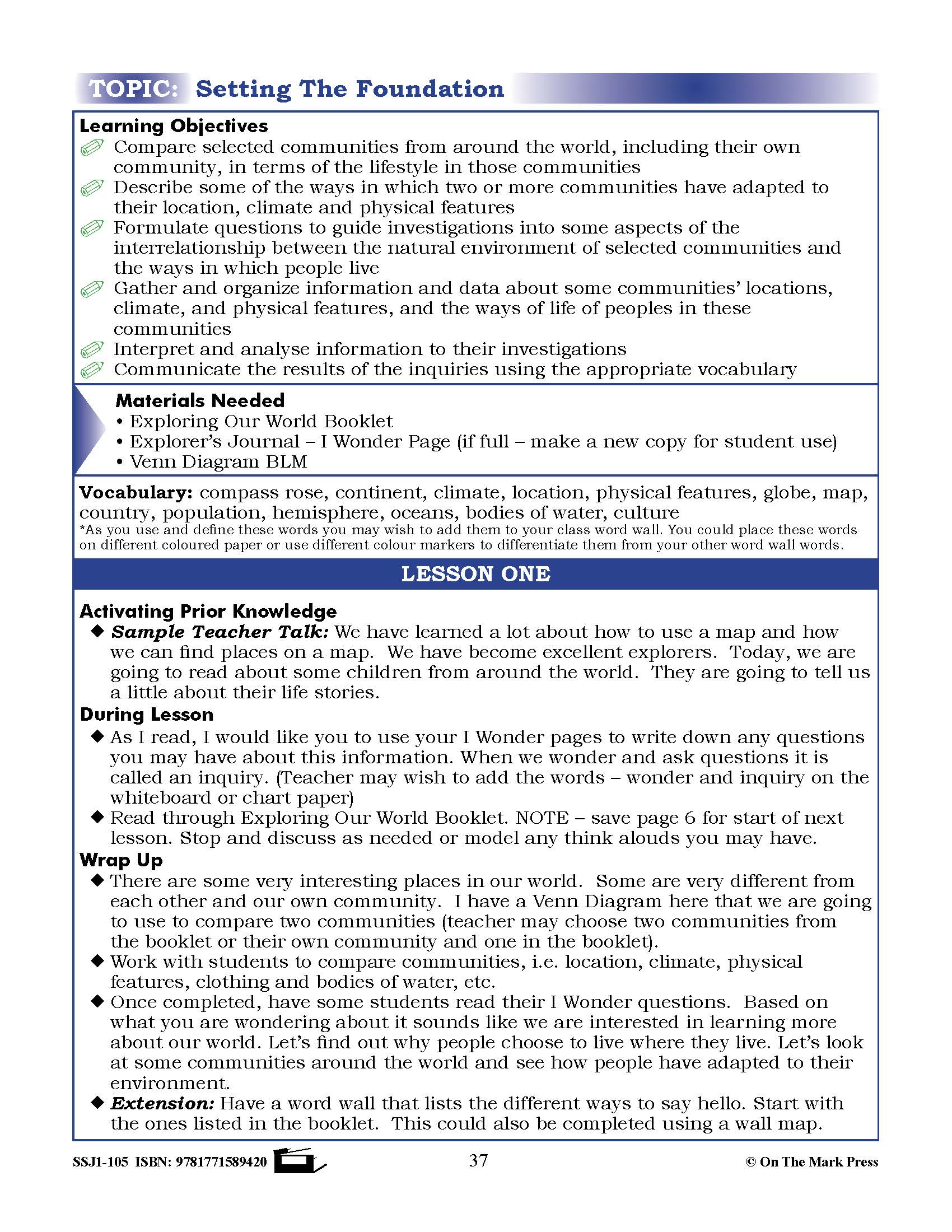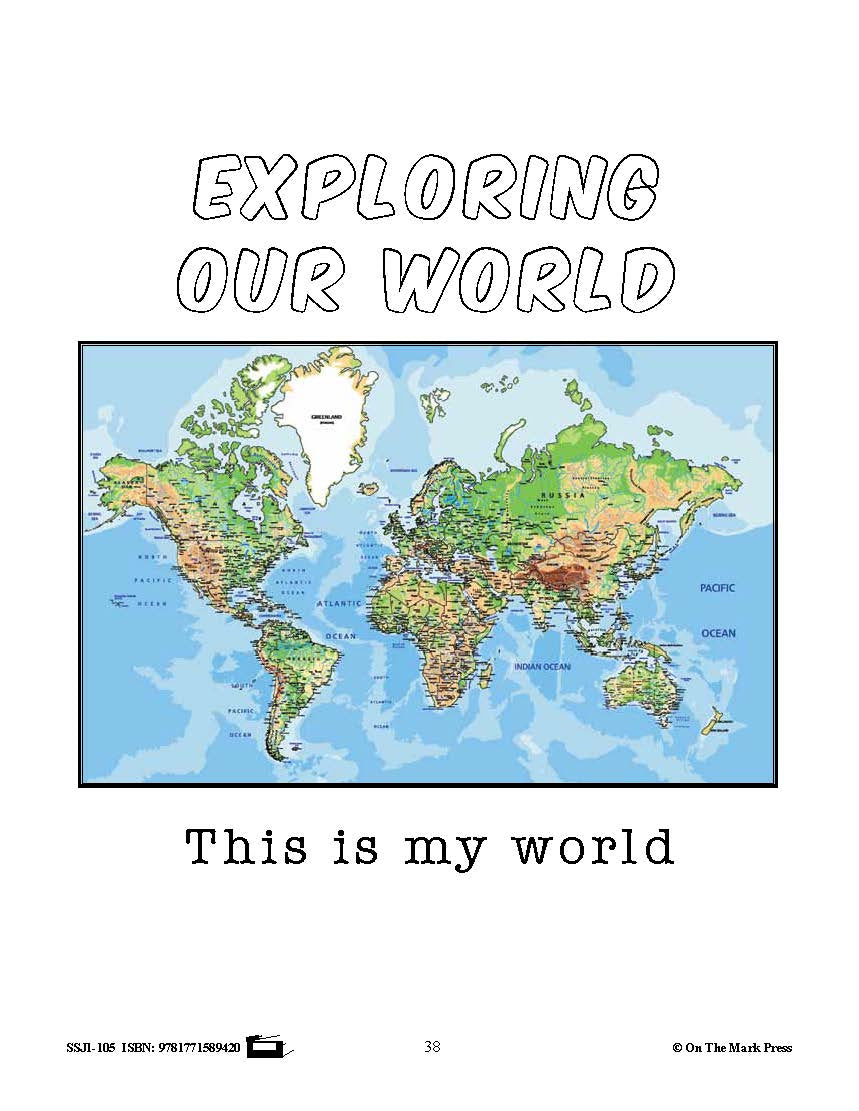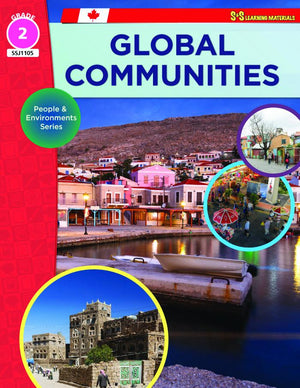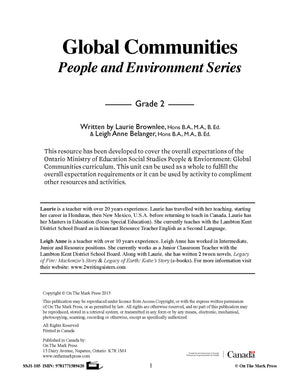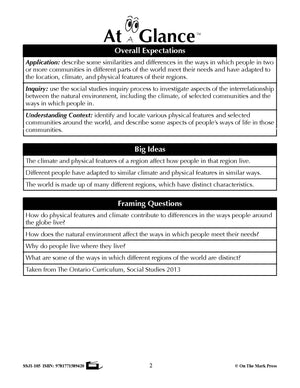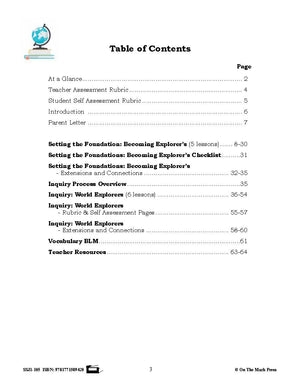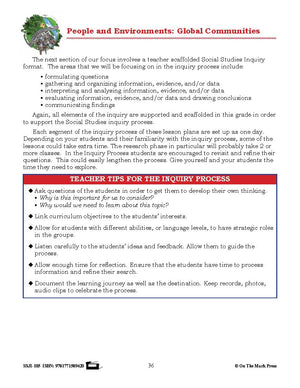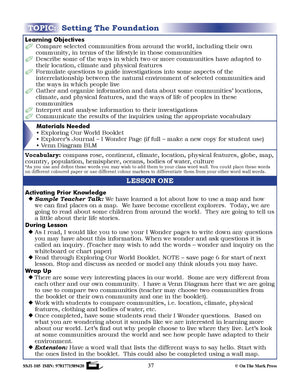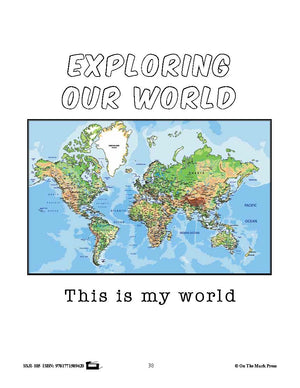Global Communities Grade 2 Ontario Social Studies Curriculum
EBJ1105
$23.99 CAD
Additional information:
In this resource, students will learn about Global Communities. The resource covers the overall expectations of the Ontario Social Studies curriculum. Lesson topics cover the continents, oceans and other bodies of water, countries, equators, the environment, and daily life around the world. This resource includes detailed lesson plans with vocabulary, teacher talk to get kids thinking and activate their prior knowledge, during the lesson teacher talking prompts and wrap up lesson dialog and ideas.
Section One: Setting the Foundation:
The first section of this resource is setting the foundational skills for student research. There is a heavy focus on the use of infographics during the Foundation Setting. These are designed to assist students in building the knowledge needed with the use of graphics and text that contains key information.
Becoming Explorers 5 lessons
- Explorer’s Map Observations
- An Introduction to Global Communities & Global Communities
- The Continents
- Bodies of Water & Basic Human Needs
- Equator and the Environment; Hemispheres and the Poles
Extension Activities
A) Math:
- Number Sense - #1 Fractions and Percent and #2 Ordinal Numbers
- Measurement: Temperature
- Geometry and Spatial Sense: Data Management #1 Graphing
B) Language Arts Extensions
- Writing: Genre and Media Literacy Activities
C) Physical Education Extension
D) Visual Arts
E) Drama
F) Music
G) Science: Life Systems
Second Section: World Explorers
The second section focuses on the inquiry process. Some of the benefits of a student inquiry are that the students take ownership of their own learning which should increase engagement and interest. It also sets a solid basis for research skills for the future. This resource focuses on the big ideas in the Social Studies curriculum and has a mix of concrete and open-ended lessons so that the teacher has flexibility in planning. The inquiry process has been scaffolded for teachers and/or students new to the process. There are also extensions and cross-curricular activities included.
Six lessons covering these learning objectives:
- Compare selected communities from around the world, including their own community, in terms of the lifestyle in those communities.
- Describe some of the ways in which two or more communities have adapted to their location, climate and physical features.
- Formulate questions to guide investigations into some aspects of the interrelationship between the natural environment of selected communities and the ways in which people live.
- Gather and organize information and data about some communities’ locations, climate, and physical features, and the ways of life of peoples in these communities.
- Interpret and analyze information to their investigations.
- Communicate the results of the inquiries using the appropriate vocabulary.
Extensions Activities:
A) Math: Measurement and Data Management
B) Writing Genres
C) Media Literacy
D) Visual Arts
E) Physical Education
F) Healthy Living
Goals of this resource include:
- Identify and locate various physical features around the world
- Demonstrate that there are a variety of countries, continents, physical features and bodies of water around the world
- Identify cardinal directions on a map and use these directions when locating selected communities, countries and/or continents
- Identify the location of selected countries around the world
- Identify continents, significant bodies of water, the equator, poles and hemispheres
- Identify basic human needs
- Compare selected communities from around the world, including their own community, in terms of the lifestyle in those communities
- Describe some of the ways in which two or more communities have adapted to their location, climate and physical features
- Formulate questions to guide investigations into some aspects of the interrelationship
- between the natural environment of selected communities and the ways in which people live
- Gather and organize information and data about some communities’ locations, climate, and physical features, and the ways of life of peoples in these communities
- Interpret and analyze information to their investigations
- Communicate the results of the inquiries using the appropriate vocabulary.
64 pages including an answer key.
You may also like:
Canadian Daily Language Activities
Canadian Math Google Slide Activities
Free Grade 2 Lessons & Worksheets
Get fresh, ready-to-use activities straight to your inbox — free every week!
Sign Me Up
Follow us on:

